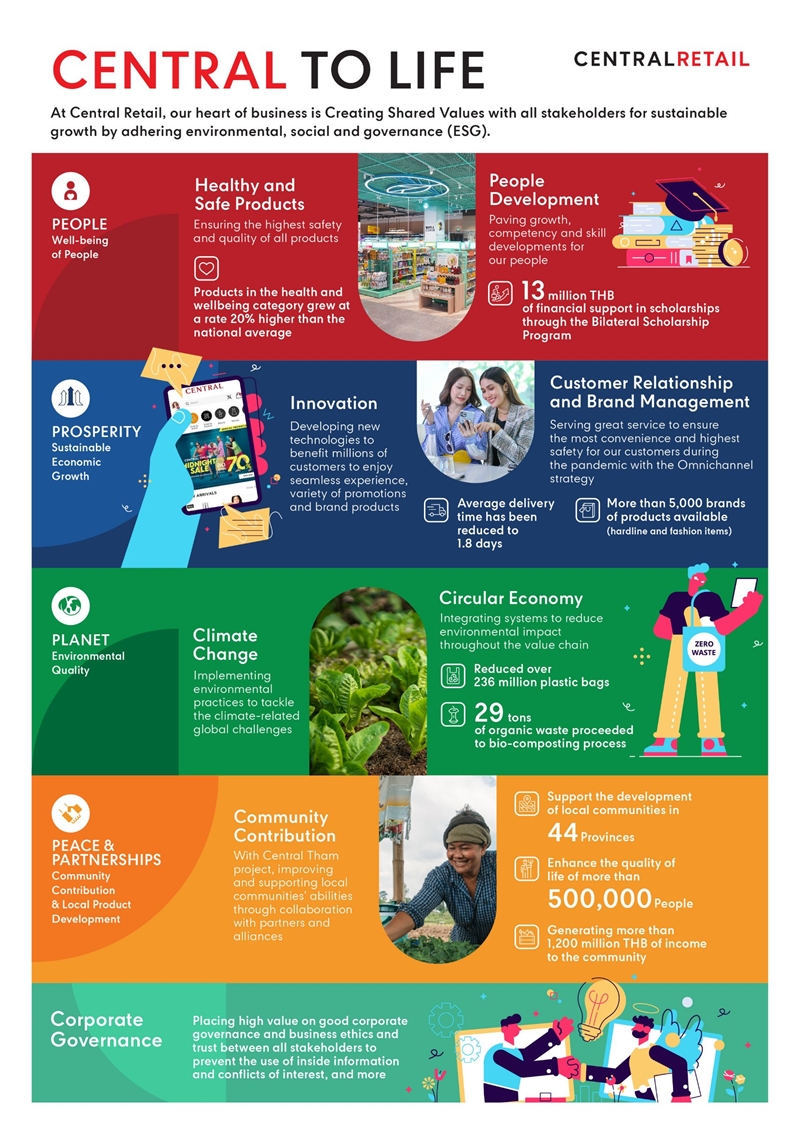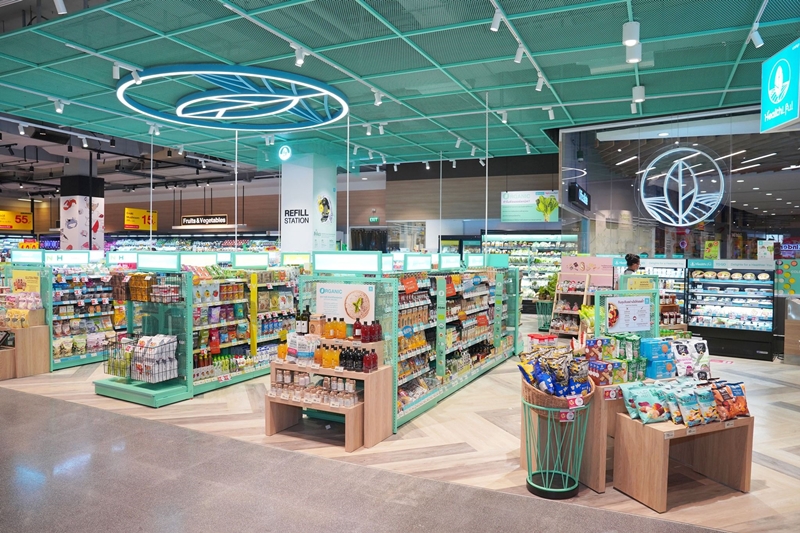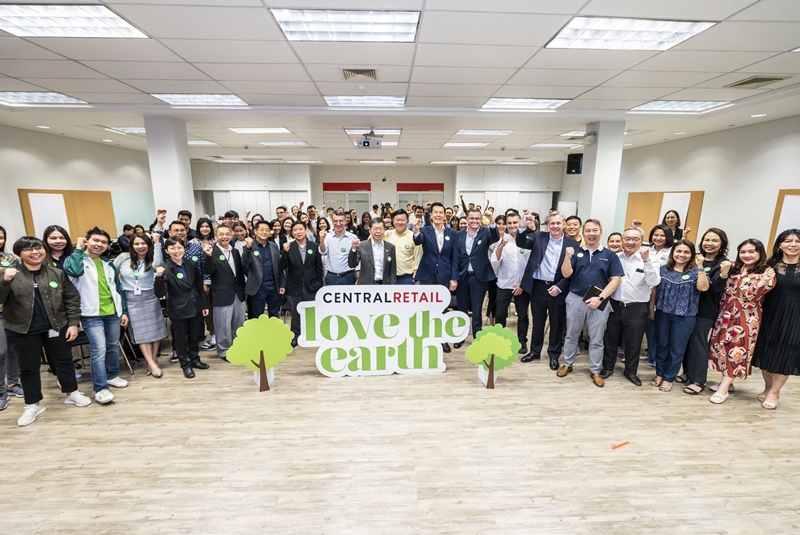
In an altered global context, business operations inevitably fluctuate in its wake. Currently, the business sector and corporations are giving priority to operations focused on sustainable growth, driven by policy and key goals in various dimensions of the environment, communities and society, based on the principles of good corporate governance. It has been a critical challenge for many companies to readjust their operations and manage their business alongside supporting social and environmental development for sustainable prosperity and growth.
Leading Thai retailers such as Central Retail (CRC) have also continuously prioritized business operations to grow sustainably with a hands-on approach. At latest, Central Retail has been selected as a Thailand Sustainability Investment stock in 2021 from the Stock Exchange of Thailand, in the first year of evaluation despite the company only recently having been listed. The selection will inspire confidence in investors and illustrate that Central Retail is a business setting guidelines and leveraging its potential to support the solution of social and environmental issues. It is also driving sustainable development strategies to be a key part of management. There is a fully comprehensive risk management process. The company is ready to adjust and create competitive opportunities through business innovation and new tech, attaching significance to stakeholders, communities and society, as well as having management guidelines for a rapid response to the Covid-19 pandemic.
At the helm of Central Retail is Yol Phokasub, Chief Executive Officer of Central Retail Corporation Plc. (CRC). He disclosed the formula for success in becoming a model retail organization of the future. Central Retail has the clear goal of being Central to Life. The company is obligated to act in the interest of Thai people, communities and the nation. At the core of corporate development is business operations which consider long-term impacts. They co-create value with customers, suppliers, communities and wider society on the basis of good corporate governance, to build sustainability for the next generation. It is a commitment to ceaseless hands-on activity under the 4P strategies which is driving the business for sustainability, and consistent with the principles of care for the Environment, Society and Governance (ESG) with the following four pillars:
1. Well-being of People (People)
Developing knowledge by applying expertise to create value for employees, suppliers, customers and other members of the ecosystem. For instance, the company supports occupations for disabled people to reduce inequality. It paves growth, competency and skill development for its people, by giving financial support in scholarships, respecting the human rights of its employees and selling products which are safe for consumers' health. Products in the health and wellbeing category have grown at a rate 20% higher than the national average.
2. Corporate Governance & Economic Growth (Prosperity)
The company is focused on efficient management for economic development, to bring the greatest benefits to all stakeholders. This includes coping with global trends which are constantly changing, such as supply chain management to enable faster product delivery. Average delivery time has been reduced to 1.8 days. New technologies have been innovated to align with altered consumer behavior, such as omni-channel marketing to ensure the most convenience and seamless shopping experience for our customers.
3. Environmental Quality (Planet)
Focus on efficient environmental management throughout the value chain, sourcing high standard raw materials, using resources for the greatest benefit with correct management to conserve the environment from inside the corporation to the outside. The company is reducing its waste and pollution with clean energy, managing organic waste correctly through a bio-composting process and recycling resources. This includes reducing waste to zero under the Journey to Zero program and the Say No to Plastic Bags program which have been extremely successful and reduced the use of plastic bags by 236 million pieces.
4. Community Contribution (Peace & Partnerships)
Focus on creating value for a better quality of life for people in society and local communities, promoting local arts and crafts alongside environmental development and economic growth. For instance, there is creating good relationships with communities and sourcing quality local products to encourage business competition. Communities have been supported in 44 provinces, improving the quality of life for over 500,000 Thais, and generating income for communities of over 1,200 million THB. Programs such as Jingjai Farmer's Market is an important sales channel for growers from every region of Thailand, and currently has over 23 branches
During the Covid-19 pandemic, Central Retail has been supporting public health as well as assisting with economic recovery. For instance, it has supported non-hospital vaccination sites, donations of medical equipment, food and essentials, as well as looking after employees, setting up the Community Isolation by Central Tham. It has insured cooperation and strict compliance with measures of the Public Health Ministry, and maintain health and safety for employees and customers who are the heart of our operations. This has included maintaining retail employment for over 19 million people, not leaving anybody behind, well foundations have been laid for maximally efficient business operations which are traceable and transparent.
"All of this is the dedication of Central Retail to continue being hands-on for the business sector, to be part of creating positive long-term quality outcomes. To create positive impact on people's lives, society and the planet. We will continue to adapt our strategies and management on the basis of corporate governance to create value and benefit the society in which we operate, alongside creating business sustainability to grow together," concluded Yol.


